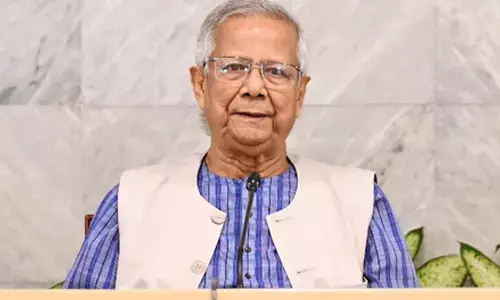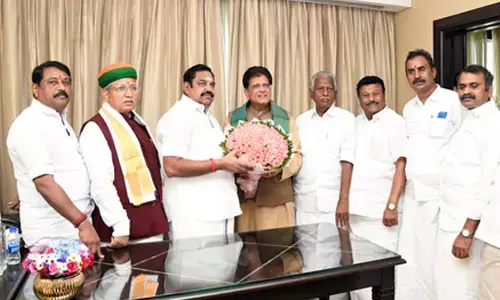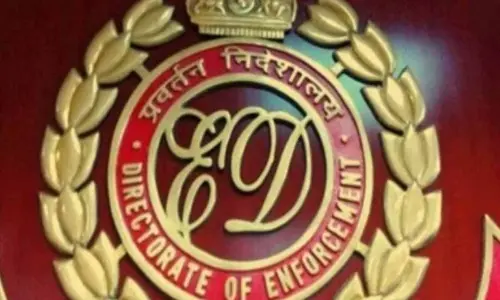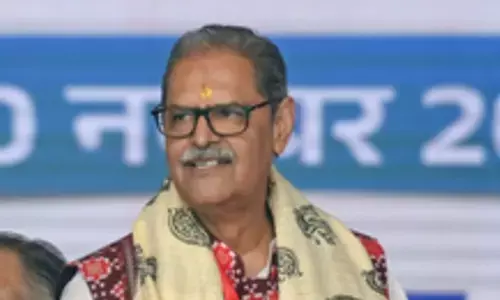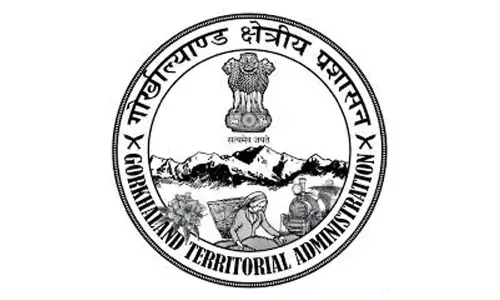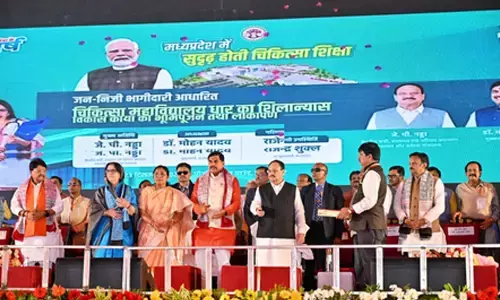Mumbai commuters to candidates: Catch me if you can!
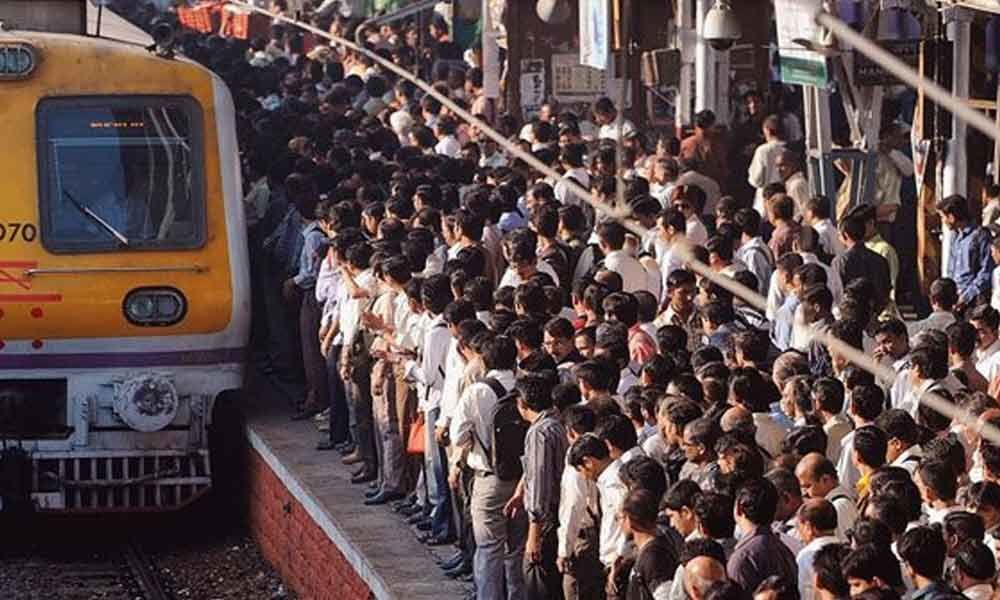
The biggest nightmare for candidates in the Mumbai, Thane, Palghar and Raigad Lok Sabha constituencies is how to ‘catch’ the slippery commuters who are their main electoral bank.
The biggest nightmare for candidates in the Mumbai, Thane, Palghar and Raigad Lok Sabha constituencies is how to 'catch' the slippery commuters who are their main electoral bank.
As is well-known, nearly two-third of Mumbaikars comprising office-goers, workers and students, are perpetually on the move - some 8.5 million in suburban trains, and another two million or so in BEST and ST buses, taxies, autorickshaws or private vehicles.
The Commuter - who is the king in Mumbai - shuttles to and fro his/her home in the far-flung suburbs to the work place or educational institution in South or South Central Mumbai or one of the new business hubs that have come up in recent times.
"I am not aware who are the candidates in my constituency. I have not attended any political rallies, but ha, PM's approval rating down but Rahul's not picking up. I am out of home for 10-12 hours daily," said a woman commuter from Mira Road, Kiran SV, 45.
A legal team member of a prominent corporate business park, Kiran commutes daily to Mahalaxmi in the Mumbai South Central constituency, but she is a registered voter in Thane Lok Sabha constituency being contested by the Shiv Sena's Rajan B Vichare and Nationalist Congress Party's Anand Paranjpe.
On an average, a typical king commuter spends between 60-90 minutes one-way, twice daily, in suburban trains.
The Western Railway suburban sector is spread from Churchgate to Dahanu (116 kms), the Central Railway suburban lines from Chhatrapati Shivaji Maharaj Terminus to Kasara (102 kms) and CSMT to Karjat (51 kms), with around 2,050 services operating on all these sectors for some 22 hours.
For candidates in Palghar, Thane, Mumbai North, Mumbai North East, Mumbai North West and even other constituencies, the potential voter has already disappeared around 8 a.m. for work and would only return after another 12-14 hours.
"During the day, the candidates only get housewives, senior citizens or children which is not sufficient to convey the candidates' opinions and solicit votes.
By the time the other adult voters return home they are too tired to attend any election meetings and prefer to relax at home," rued Ashok Sutrale, Mumbai North District Congress President and campaign director for Bollywood actress Urmila Matondkar.
Accordingly, he and other campaign managers of candidates make it a point to organise meetings, small rallies and public-candidate interactions outside railway stations to "catch the maximum number of commuters".
Admitting this is a serious issue during elections, Western Railway Passengers Association President Anil Shukla has made an innovative suggestion to the government and Election Commission of India.
"Since this problem is unique to Mumbai, the government and ECI must permit all candidates contesting in seats falling on the sprawling suburban make short tape-recorded appeals which can be played on the railway stations, suburban trains throughout the day.
It can be properly organised to ensure it doesn't interfere with routine passenger-related or emergency announcements," Shukla said.
Going a step further, Zonal Railway Users Consultative Committee Member Shailesh Goyal said that the railways can earn attractive revenues from this proposal, which would be similar to the timings permitted on Doordarshan, All India Radio and other private audio-visual channels by the ECI.
Both Shukla and Goyal felt this would help save the candidates' time and avoid huge congestion and security concerns outside railway premises, besides preventing incidents like the ugly ruckus between BJP and Congress workers near Borivali station on April 15 where Matondkar was campaigning.
Rail Yatri Parishad President Subhash Gupta said that it's imperative for all MPs to take up the cause of the 8.5 million railway commuters who daily travel in sub-human conditions from home to work and back.
However, as far as commuters are concerned, most admit they hardly get time to attend any political rallies/meetings and rely more on word-by-mouth or social media knowledge to decide whom to vote for.










